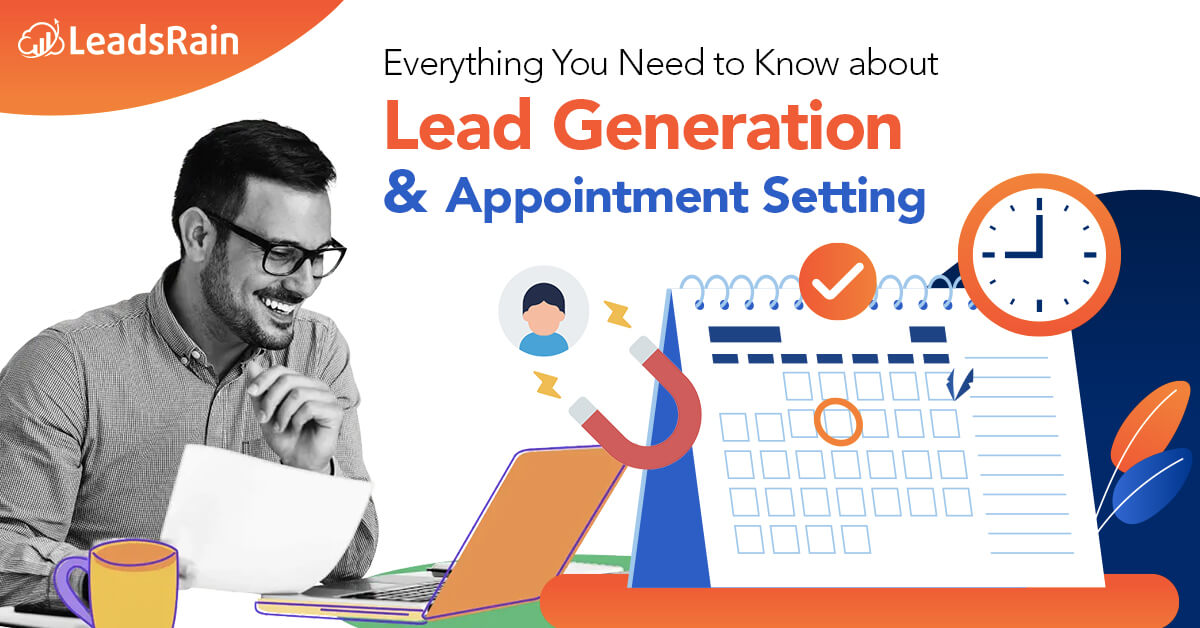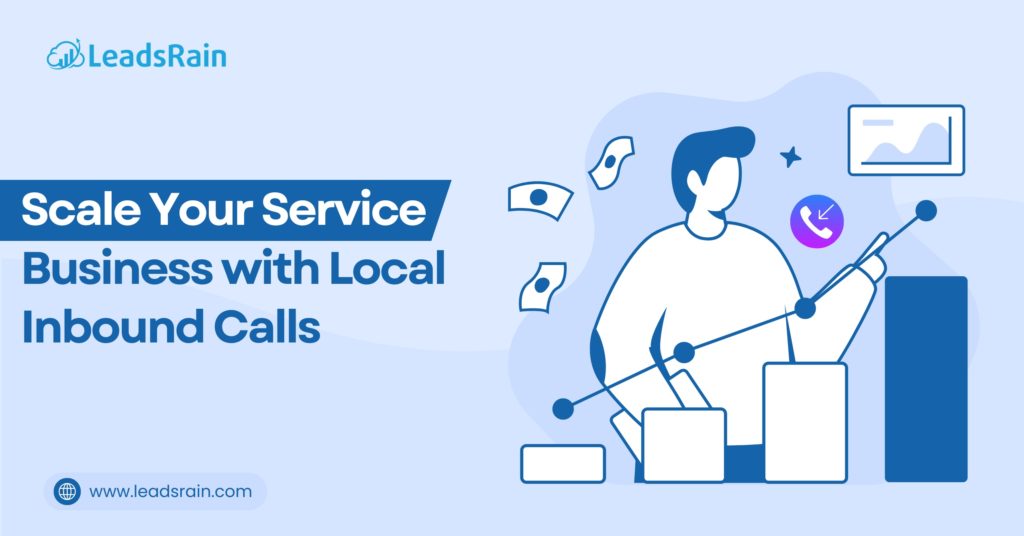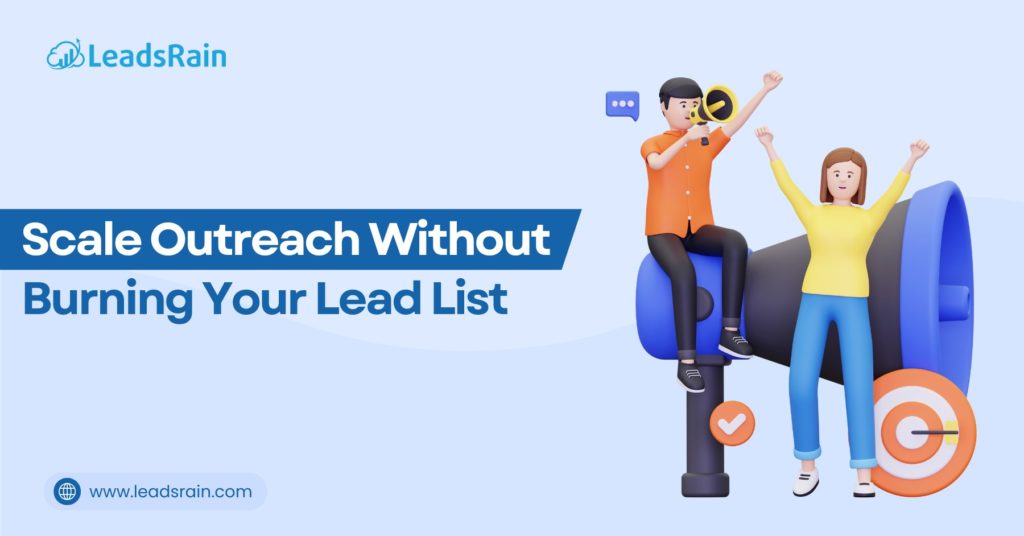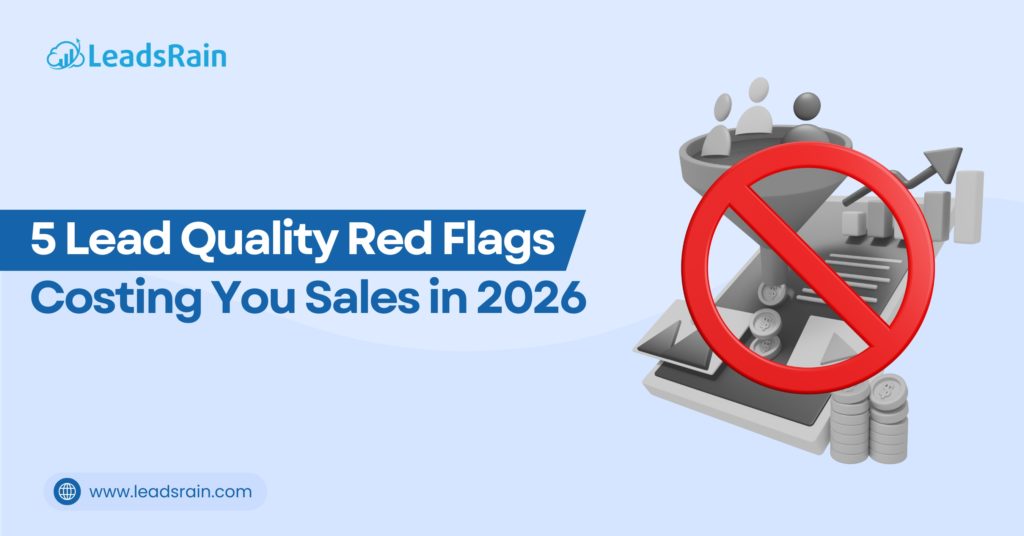We all know that the B2B market is more challenging than the consumer market. Businesses use lead generation or appointment setting to attract and appeal to their target audience and clients.
Lead generation and appointment setting have similar working principles. But, they do have some significant differences in their methodologies. You can’t use both of them in your business. You have to choose one that fits and works better for your business than the other.
This article will summarize all the information related to lead generation and appointment settings. Read this article to learn everything about lead generation and appointment setting.
What is Lead Generation?
Lead generation is initiating consumer interest in a specific business product or service. This procedure or method involves several ways to enhance their progress, including advertising, telemarketing, digital content marketing, and other customer referral.
Lead generation could be hosting live events, offering discount deals, job applications, or posting social media content. All these steps are usually taken to build the interest of the audience. It also leads back to your business website ending in some potential lead-making contact, and finally qualifies as lead generation.
Lead generation serves a variety of goals as well. Generally, a business can look for leads for particular endeavors that might result in a sales conversion. These actions include acquiring emails, newsletter subscribers, sales leads, marketing leads, qualified leads for products and services, etc.
The majority of lead generation techniques resemble advertising. These can occasionally come from unpaid sources, too, such as the customer mentioned above recommendations or natural search engine traffic that points to your website.
What is Appointment Setting?
Setting appointments is a tactic to attract new clients through prearranged appointments. But it’s not as easy as it seems.
The company’s sales team normally has to make unlimited contact with qualified leads to schedule appointments. As soon as they get in touch with them, they are in charge of identifying them as potential customers who are likely to make a firm decision.
They further proceed to arrange a meeting with those prospects so that they can speak with a salesperson or representative about the good or service.
Businesses frequently contract out the appointment-setting portion of prospecting. This frees up the time of the sales team for other beneficial activities like appointment preparation.
Setting an appointment is essentially the final step in generating leads. The salesman or other company representative is responsible for guiding the prospect through the sales process and closing the deal once the appointment has been scheduled and made life.
For B2B companies, only the most qualified leads will be considered when scheduling appointments. Generally speaking, a qualified lead is someone who is actively demonstrating interest in the goods or services that the company is providing.
The appointment makers can determine that a prospect is on track to make a wise purchase decision when they see active participation.
What is the Difference between Lead Generation and Appointment Setting?
Before discussing these two terms or methodologies, we must understand the difference between leads and prospectus. These two words are usually used to make a significant difference between them. These two words are:
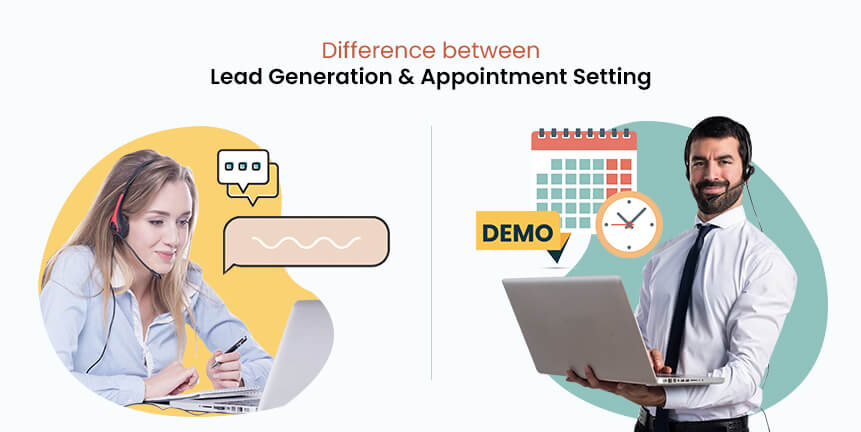
Leads: They are people or companies who have expressed interest in finding out more about your business. They are also interested in the goods and services you provide. However, it’s unclear whether they are eligible to receive your company’s products.
Prospects: Prospects are people or businesses in the sales pipeline who haven’t expressed a strong interest in the goods or services offered by your business. Sales representatives create lists of pre-qualified leads throughout the strategic prospecting procedure. They could contact or email these leads to introduce them to your business.
Let’s discuss the major differences between lead generation and appointment setting. They are:
Goal
Lead generation aims to expose potential consumers to your brand and prompt them to provide their contact information so you can add them to your sales pipeline.
When they submit a contact form or sign up for a company newsletter, they turn into leads in lead generation. Although you are unsure if they fulfill your requirements, you are certain they are interested in what your business offers.
On the other hand, the appointment setting aims to convert prospects into leads. Sale prospecting is the practice in question. Even if the potential consumer may fit your ideal client profile, they could not be enthusiastic about your business or the goods and services you offer.
Sales representatives develop relationships with prospects until they are prepared to make a transaction soon.
Strategy
Lead generation focuses on approaching potential clients and gathering all the relevant information. After this, it is passed to the sales team to finalize what they want to do with the provided information.
Whereas Prospecting or appointment setting focuses on generating leads with businesses that can also meet the company’s qualifications. However, a company’s sales team cold calls or email the leads. This will provide relevant value for the sales appointment within your internal team.
Process
Creating and sharing content while keeping your target audience in mind is the key component of the lead generation process. If your marketing plan is effective enough, ideally, a person will provide you with their information so you can add them to your sales pipeline.
Setting up appointments is a simpler process with fewer chances for error. Making an appointment, showing up for the appointment, and deciding what to buy are all parts of the appointment-making process. It helps the business in many ways.
How Does Sales Dialer Software Help with Lead Generation and Appointment Setting?

Increased Efficiency
LeadsRain’s Sales dialer software automates the dialing process, eliminating the need for manual dialing by agents. It automatically dials a list of leads, saving time and increasing the number of calls made per agent. This increased efficiency allows your team to reach more leads and generate more opportunities for lead conversion and appointment setting.
Faster Call Connect Rates
Sales dialer utilizes advanced algorithms, such as predictive or power dialing, to optimize call connect rates. These algorithms analyze calling patterns and agent availability to determine the best time to dial each lead. As a result, agents spend less time waiting for calls to connect, leading to higher productivity and improved lead generation and appointment-setting outcomes.
Intelligent Call Routing
Sales dialers often include intelligent call-routing capabilities. Calls can be intelligently distributed among agents based on various factors, such as skill levels, availability, or specific campaign requirements. This ensures that each lead is connected to the most suitable agent, increasing the chances of successful lead conversion and appointment setting.
Call Recording and Analytics
Sales dialer software typically offers call recording and analytics features. Call recordings can be used for training, allowing managers to review and provide feedback on agent performance. Analytics provide valuable insights into call metrics, such as call duration, conversion rates, and campaign effectiveness. This data-driven approach helps optimize lead generation and appointment-setting strategies by identifying areas for improvement.
Real-Time Reporting and Monitoring
Cloud-based dialers provide real-time reporting and monitoring capabilities, allowing supervisors to track agent performance, campaign progress, and call metrics. This visibility enables managers to make informed decisions, quickly address issues, and implement necessary adjustments to optimize lead generation and appointment-setting efforts.
Integration with CRM or Lead Management Systems
LeadsRain can integrate seamlessly with CRM or lead management systems. This integration enables agents to access lead data, update real-time information, and synchronize data between the dialer and the CRM system. It streamlines the lead generation and appointment-setting processes, ensures data consistency, and enhances overall efficiency.
Flexibility and Scalability
LeadsRain Dialer also offers flexibility and scalability, allowing you to adjust your calling capacity based on your business needs. You can easily scale up or down the number of lines or agents as required, ensuring that you have the resources to handle lead generation and appointment-setting activities efficiently. Additionally, cloud-based solutions provide flexibility for remote work, allowing agents to connect and make calls from anywhere with an internet connection.
Multi-Channel Outreach
LeadsRain offers a comprehensive suite of communication channels, including voice, SMS, email, and ringless voicemail drops.
This multi-channel approach enables you to reach your target audience through their preferred communication channels, increasing the chances of engagement and response. By diversifying your outreach methods, you can maximize your lead generation efforts.
Final Thoughts
Lead generation and appointment setting are the best ways to strengthen your business and attract potential clients and customers. However, you need to understand the methodologies of both procedures to choose what fits best in your business.
We hope this article will provide you with all the information related to lead generation and appointment settings. Make sure to consider all the information mentioned above to choose the best one for the betterment of your business.
Want to know more about Lead generation and appointment setting? – Let’s discuss this on a quick call or write us at support@leadsrain.com
